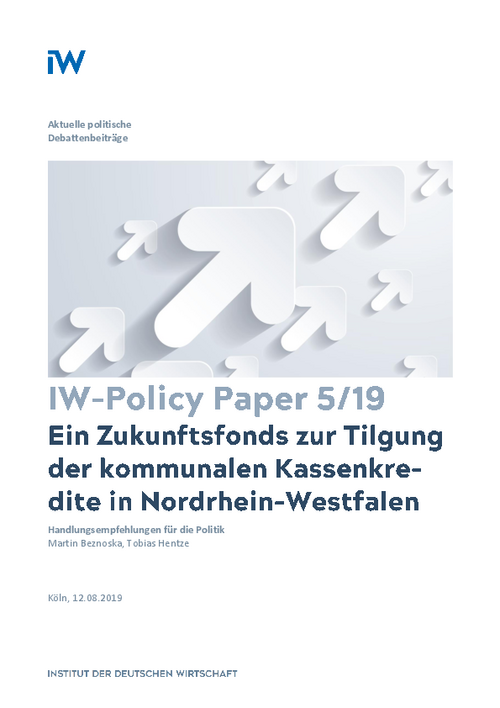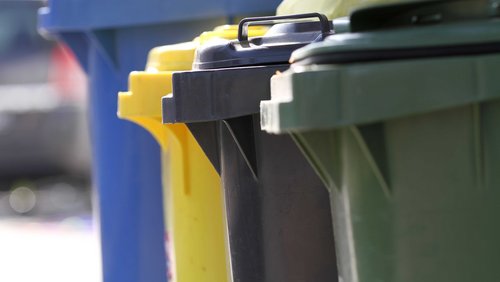The indebtedness of the municipalities in North Rhine-Westphalia (NRW) has increased significantly over the past 20 years. Politicians have mainly used cash loans, which are generally intended to provide short term liquidity. However, the steady rise in cash loans shows that they are rather used for general budgetary financing.

Policy recommendations: A debt relief program for municipalities in North Rhine-Westphalia
IW-Policy Paper

The indebtedness of the municipalities in North Rhine-Westphalia (NRW) has increased significantly over the past 20 years. Politicians have mainly used cash loans, which are generally intended to provide short term liquidity. However, the steady rise in cash loans shows that they are rather used for general budgetary financing.
Only one of three municipalities in NRW do not have cash loans; in 2000 it was four out of five municipalities. The distribution of cash loans concentrates mainly on the Ruhr area and neighbouring cities. Occasionally, communities in Sauerland, Eifel and East Westphalia also have relatively high cash loans.
In order to give municipalities more room to manoeuvre, a haircut in conjunction with a consolidation of expenses is required in many cases. The surpluses of the public sector offer the opportunity to pay off old debts sustainably through joint efforts of the state and local authorities. This could be institutionalized in the context of a "future-orientated fund for NRW”. In order not to offend sound economic communities, the haircut should be supplemented by investment aid for municipalities with little or no cash credits.
According to these criteria, 143 municipalities in NRW would participate in the debt restructuring program, 253 municipalities would receive investment subsidies. Depending on its design, the "future-orientated fund for NRW” would require funding of up to € 25 billion. It is important that the municipalities make their own contribution to the debt relief program. The Land would then contribute about 18 billion euros. Any help by the federal government, as recently announced, could lower the burden for the Land.

Martin Beznoska / Tobias Hentze: Ein Zukunftsfonds zur Tilgung der kommunalen Kassenkredite in Nordrhein-Westfalen
IW-Policy Paper

More on the topic

Two years later: The EU Circular Economy Package
The European Commission aims to push forward the concepts of ‘recycle, repair and re-use’ as well as waste avoidance. Two years after adopting the Circular Economy Package, EU institutions finally agreed on new EU waste rules.
IW